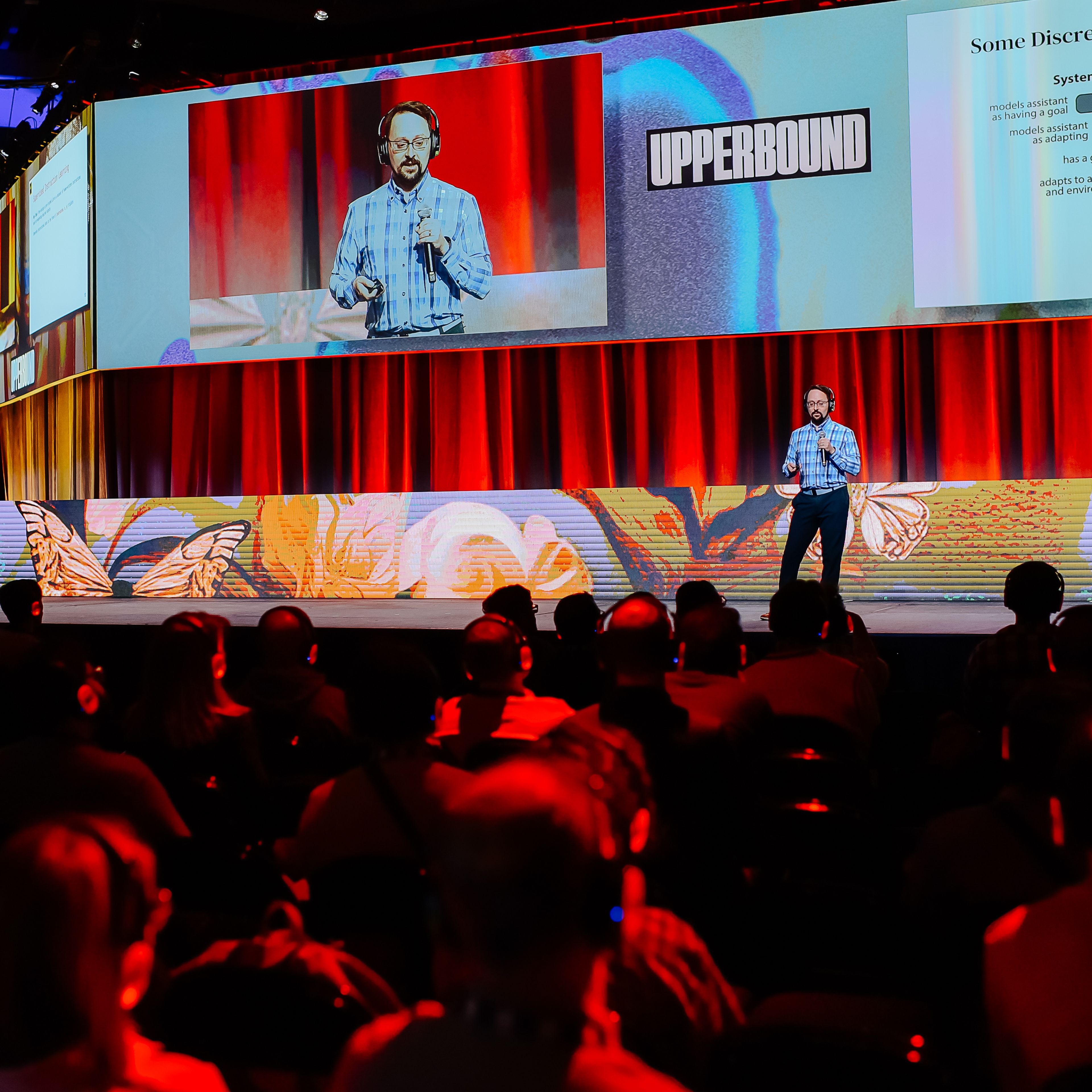![]() Amii Fellow and Canada CIFAR AI Chair Osmar Zaïane will be honoured for his significant achievements in advancing the science of machine learning.
Amii Fellow and Canada CIFAR AI Chair Osmar Zaïane will be honoured for his significant achievements in advancing the science of machine learning.
At its annual gala in November, CS-CAN|INFO-CAN will present Zaïane with a Lifetime Achievement Award for his impact on computer science research in Canada. This makes Zaïane the fourth Amii researcher to receive the Lifetime Achievement Award.
"I take great pride in this achievement. It is important to note that this recognition extends beyond merely acknowledging the research; it also encompasses our contributions to the community," Zaïane says.
In search of solutions
Zaïane’s wide-ranging interests have led him to work on a staggering variety of machine learning and computer problems — everything from social network analysis to robotics, to developing AI chatbots that increase access to mental health resources.
While many academic researchers might spend their careers focusing on one field or topic, Zaïane says he prefers to focus on using machine learning to solve practical problems, which leads him to explore new areas of research.
“Why should I focus on only one? It becomes boring,” he says.
“When I'm working on practical applications, I find different problems. So I tackle different problems and that takes me to different directions.”
Digging into data mining
Zaïane’s career in machine learning began in the 1990s when he was working on smart card technology that would make it easier to move data around — for instance, a patient could carry a smart card that would contain their medical records with them to a doctor’s appointment.
He says he worked on that project for several months and was excited by the project. But his PhD supervisor wasn’t as keen, which steered Zaïane towards a different promising technology.
His supervisor added, “Why should I focus on only one? There is an opportunity for problem solving.”
That started his work in the emerging discipline of data mining, where he focused on understanding user behaviours in both financial and educational platforms. He was able to make significant contributions to what he calls the “canonical tasks” in data mining, including classification, clustering, and association rules.
Zaïane’s current research fits with his desire to solve practical problems with machine learning. He is exploring how artificial intelligence can be used to design adaptive machines, which can sense when they are damaged or faulty and adjust to continue working. Adaptive machines could be invaluable in industries like manufacturing, where shutting down a production machine could cost hundreds of thousands for every hour it isn’t working. Instead of turning off a machine and waiting for its repair, there is the potential for it to work at reduced capacity until it can be fixed.
Adaptive machines could also make things safer for people working in extreme environments; he uses the example of space exploration. Human intervention can be impossible or when feasible, there is a huge risk — here is a huge risk to astronauts anytime they have to do repairs or modifications to equipment while in space. If machines could adapt to problems, it could reduce the amount of times humans need to intervene.
Zaïane is passionate about a current project using machine learning to help diagnose diabetic retinopathy earlier. High blood sugar can cause damage to the eyes, which can affect a person’s sight. It’s something that can be caught during routine eye exams, and can often be the first indication to a person that they might be diabetic. However, the signs of diabetic retinopathy are subtle and can be easily missed. Zaïane is exploring how machine learning can pick up on patterns in medical images, alerting optometrists to potential cases of retinopathy, while providing explanations for each prediction.
“We're not replacing the doctor. We're building tools that will make them do their job better,” he says.
Service as well as science
Zaïane’s contributions to machine learning extend past just his own research. He is a strong believer in the collaborative and cooperative nature of scientific research and dedicates a lot of time to building communities and training the next generation of scientists. Zaïane served as the director of Amii for more than a decade, helping to grow it from a small group of AI scientists at the University of Alberta into a world-leading research institute.
He has devoted time to programming many conferences and guest editing machine learning journals. But Zaïane says he is most proud of the time he has spent teaching and supervising students, where he uses his experience over a wide range of machine learning topics to help them shape their own research interests and career paths.
“You often ask yourself, why am I doing this? Well, I'm doing this because it brings me pleasure. I like supervising students, I love teaching,” he says.
“The reward I get is when I have a student succeed, I can say I was part of their life.”
Past recipients of this award include Russ Greiner ( Amii Fellow and Canada CIFAR AI Chair) in 2022, Robert Holte (Amii Fellow and University of Alberta Professor Emeritus) in 2019, Rich Sutton (Canada CIFAR AI Chair, Amii Fellow & Chief Scientific Advisor, and University of Alberta Professor) in 2018.

Not Your Average AI Conference
Learn from Leading Minds in AI at Upper Bound
Be one of the thousands of AI professionals, researchers, business leaders, entrepreneurs, investors, and students in Edmonton this spring. Explore new ideas, challenge the status quo, and help shape a positive AI future.